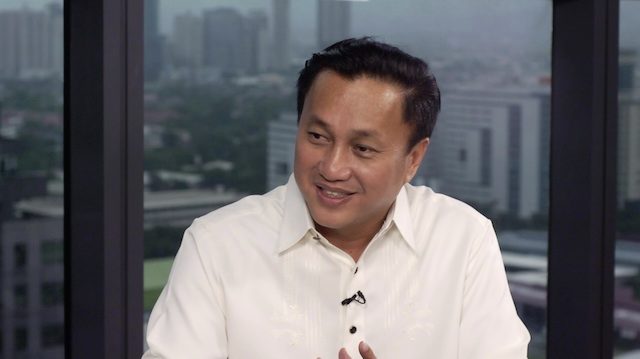SUMMARY
This is AI generated summarization, which may have errors. For context, always refer to the full article.

MANILA, Philippines – To better prepare for the “Big One” – a powerful earthquake that could strike Metro Manila within our lifetime – Filipinos will need to “shock-proof” themselves and respond to the disaster as a society, Metropolitan Manila Development Authority (MMDA) Chair Francis Tolentino said.
Speaking on Rappler Talk on Thursday, July 16, Tolentino discussed how his agency is preparing for the metrowide earthquake drill set on July 30. The event is expected to be a realistic simulation of the widespread damage in Metro Manila after a powerful quake, and aims to test how well local disaster units can respond.
(WATCH: Disaster preparedness in the age of social media)
Experts say the devastating effects of such a strong quake could mean as many as 35,000 dead within the first hour, at least 100,000 injured, and infrastructure damage on a massive scale. (READ: What dangers await when the West Valley Fault moves?)
“The past few months really roused our collective consciousness that we have to do something. It cannot be prevented, but mitigating measures can be put in place so that we can reduce the casualties and injuries as well as the impact on the economy,” Tolentino said.
Calls for a metrowide earthquake drill started, following the 7.8-magnitude quake that hit Nepal in April. Government officials have also released an atlas of the two major fault lines in the Greater Metro Manila area and vulnerable areas.
The MMDA chief called for an earthquake drill after earlier noting that most people do not take the drills seriously. (WATCH: Project MOVE: Preparing for earthquakes)
“We have to shockproof ourselves for that eventuality,” Tolentino said.
Info campaign, local coordination
Key to this is the information campaign already started by the MMDA and various local government units. Tolentino emphasized that just knowing what to do before, during, and after an earthquake is already a step forward in disaster preparedness.
But beyond individual preparations, Tolentino said that all sectors of society need to coordinate disaster plans and work together.
“[We need to] make steps as a society. Previously there were individual steps, we have drills and evacuation plans, but I’m looking forward to a societal response to what will happen and what will make not just Metro Manila but ourselves resilient,” Tolentino said.
To prepare for the July 30 event, the MMDA has already been meeting with the religious and business sectors, the academe, disaster responders, medical teams, and local officials to coordinate the disaster response.
The agency is also tapping private individuals, using technology and social media, to inform the public and recruit volunteers who will be trained for disaster response.
The aim, Tolentino said, is to cultivate a culture of preparedness.
“The recent events in Kathmandu and other parts of the world, and the [release] of the Phivolcs atlas roused a societal consciousness that perhaps Metro Manila may not be that ready for a big quake,” he said.
Yearly drill
The July 30 event will start at 10:30 am, with loud signals to be set off to announce the start of the drill. Rescue groups will be tasked to simulate disaster response for various scenarios, such as search and rescue operations, road clearing operations, fire response, and clearing of collapsed structures.
Tolentino said he hopes the earthquake drill later this month will only be the first of what should become a yearly event.
He also appealed to the public to cooperate and take the drills seriously, even if they will mean an hour of inconvenience.
“We ask for your total participation. We ask for your cooperation and tolerance…This is for us the right thing to do in terms of instilling that culture of preparedness which cannot be achieved overnight,” he said. – Rappler.com
Add a comment
How does this make you feel?
There are no comments yet. Add your comment to start the conversation.